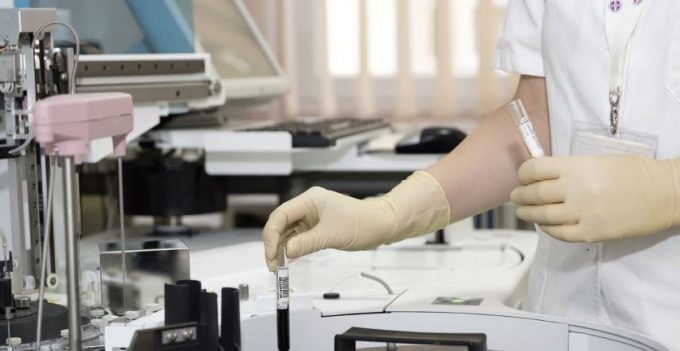
On the occasion of the World Environment Day, we had the opportunity to listen to the lecture by professor Marija Jevtic, Ph.D. on air, climate, energy and their importance for health. Marija Jevtic is a hygiene specialist, a subspecialist of communal hygiene with the pathology of the settlement and a full-time professor at the Faculty of Medicine at the University of Novi Sad.
EP: Since you are a hygiene specialist, that is, an expert in the field of public health, can you tell us when and how did you become interested in this area?
Marija Jevtic: Our specialization has a beautiful name – hygiene, by the goddess of health and is defined as a science of health. Hygiene studies environmental factors and their impact on health, striving to favour those who contribute to the health and reduce the effects of those who harm it to the minimum. All medical sciences are interdisciplinary and multidisciplinary today, but the way hygiene interacts with other professions is nevertheless specific.
Medical students see their future most often in clinical medicine, which is fully expected and justified, but one part of the medical profession is dedicated primarily to health, not the illness, and that is the part that makes preventive medicine and to the larger extent – the field of public health. The moment I met hygiene, and this was during my last year of faculty, that area became my orientation.
EP: How can we realize the connection between ecology and public health from the point of view of your profession? How do changes in the environment affect people’s health?
Marija Jevtic: Ecology is represented in hygiene significantly within the medical or health ecology, which studies the interrelations of individuals and population with the environment. During work, with all due respect for other professions, we study the behavior of environmental factors, we investigate the presence of various harmfulness and we try to assess their risk for health. A person is viewed as an individual or as a population in relation to the environment. This – in a way, selfish, anthropocentric view, adapting the environment to oneself and, consequently, influencing the environment that changes in the long-term, losing its original qualities – as a consequence, today there are significant changes in the environment. It could be said that we have greatly disturbed the planet, and it retaliates against us with symptoms of air pollution, climate change, droughts, floods, weather and similar phenomena. These are very important challenges for public health.
When talking about health, it is necessary to emphasize that absolute health does not exist. On the other hand, public health is de ned as the science and practice of protection in improving health in the local community through preventive medicine, health education, control of infectious diseases, sanitary monitoring and monitoring of ecological hazards. Public health is, therefore, the science and art of improving health, preventing disease and prolonging life through organized community efforts.
The fact that health is a commonweal implies that health care belongs to everyone – to the whole community. Public health promotion cannot be achieved without preserving and cultivating the environment, with the participation of all stakeholders, therefore the link between ecology and public health is very significant.
EP: How do you comment on the current state of the environment in our surrounding and beyond?
Marija Jevtic: The analysis of the state of the environment depends to a considerable extent on the method of data collection, which varies from a country to a country. Developed countries devote a lot of attention to the environment, not only in terms of monitoring the situation but also with the attitude towards the environment. The World Health Organization has developed a system for monitoring environmental and health indicators (ENHIS), and there are efforts to develop it within the national public health system.
The complexity of approach to preservation and improvement of the environment is reflected in the fact that this chapter is the most demanding and most expensive in the EU accession negotiations process. Nevertheless, the main motive for the tendency towards system regulation in this area should not be a negotiated procedure, but preserving and improving the health of the population.
According to the data of the World Health Organization, seven million deaths annually at a global level, are attributed to air pollution, so it is not appropriate just to comment on the situation, but to launch actions and to stop negative trends through personal and corporate responsibility. This applies to both our and global environment. Changes are much faster and worse than we anticipated.
I think it is very important to emphasize that besides monitoring and research, very important thing is to have rules and to respect them, as the way of life and behaviour.

EP: How would you describe environmental changes in the light of public health?
Marija Jevtic: The twentieth century will remain in history as a century of prosperity, progress, technological and infrastructural development, new achievements, modern technologies and communications, the invention of drugs for many diseases. The picture of the state of health is significantly changed, and mass non-communicable diseases have a higher percentage of mortality than infectious ones. In developed countries, life expectancy is significantly longer. Nevertheless, we will remember this period for conflicts, wars, forced migrations, traumas, present and growing inequality and poverty. These are the challenges that we should be aware of and with which 21st century began.
A man always strives to live in the community, believing that the community will enable him a better and more contented life, secure infrastructure as well as the necessary energy. This primary aspiration has led to the fact that the dominant share of people in urban areas still lives mostly in basically inadequate, unhygienic conditions in an infrastructure that is insufficiently or completely unregulated. Even in fully-regulated and advanced environments, the exposure to negative environmental factors is intensifying (water pollution, air pollution, waste, noise, natural disasters), so that we have recently been faced with their ever-increasing impact, and in this regard, the state of mental health of the population.
EP: What are the possibilities to answer these numerous challenges?

Marija Jevtic: In order to look at health factors in urban areas, the term urban health emerged, which grew into a special discipline. In addition, the 17 Sustainable Development Goals (formulated by United Nations as a determinant of future social and economic development in accordance with the principles of sustainability) provide a framework for the necessary action and direct national levels to specify activities and their combining, as the challenges are not present everywhere in the same way.
For example, we are not exposed to the problems of demographic growth in the number of inhabitants, but we are disposed to the decline in birthrates and aging of the population. It follows that priorities at the national level should be set taking into account this fact, and accordingly formulate strategic sustainability frameworks.
It is precisely the skill in choosing priorities, consistency in times of frequent changes, and persistence in activities part of a public health prescription, the result of which is seen after a lot of patience and many years. In order to succeed, we need not only awareness and knowledge, but also the capacity to change and readiness to give up, for the sake of sustainability in the future that will not be ours. Therefore, the process of education is very important, the readiness for rapid changes in education in the preparation of future experts, health professionals and others.
EP: What is the importance of the role of doctors and health professionals in general, in climate change, as the biggest threat to global health?
Marija Jevtic: Climate change is a challenge for public health, health systems, and therefore for health professionals. Each of us, in our professional and private life, recognizes the impact of climate change on a daily basis.
The possibilities for the operation of health professionals are reflected in the strengthening of their own capacities in human resources and their planning; participation in local and national public health policies and environmental protection; co-operation with urban planners in order to provide various bene ts by taking the lead role in reducing harmful emissions in hospitals and clinics using appropriate technologies.
EP: You mentioned the term urban health, can you identify some of the important priorities for the functioning of the urban environment?

Marija Jevtic: Urban environment, as a newly built environment, has its characteristics, and infrastructure is an important factor for the urban environment to function as an organism.
I would mention that energy is a magical word that is often mentioned in health care. I will make a digression and mention that the surplus of energy (by food intake) that we have at the individual level leads to obesity as one of the most significant challenges in many countries.
On the other hand, energy is indispensable for the functioning of the institutions, the quality of life and everyday life, and although it is not the primary concern of the health sector, it is essential. The quality of life of individuals and the population depends on the way of using energy resources, and the consequences of incorrect choices for energy security are visible in the health sector. The price of energy is not just the one we are currently paying for, it costs energy for today, but also the short-term and long-term health consequences.
The role of health professionals is not only focused on the treatment of consequences, but also on indicating decision makers to take into account the health impact when deciding on energy issues. From the perspective of health, it is important to develop an environment that allows the development and use of renewable energy sources, with the right energy sources and increasing energy efficiency. Also, health systems are significant energy consumers and participate in a large amount of energy consumption in large part, and therefore have the opportunity to contribute to mitigating climate change by their actions.
For example, the knowledge and skills of a top surgeon (or another specialist in the clinical medicine branch) can only be shown if the infrastructure conditions are met, to perform the appropriate intervention (necessary energy, water supply, etc.). It is, therefore, necessary for health professionals themselves, to be aware of and to actively contribute to the decision-making process on energy strategies using the principle of health in all policies.
EP: Who would you identify as a partner in environmental conservation and promotion activities and contributions to public health?
Marija Jevtic: The interested public (civil society) is entitled to the availability of environmental data. The non-governmental sector is an important partner in providing support to the health sector in its efforts to improve public health activities in the field of monitoring, research, and assessment of health impacts. Some organizations, such as the RES Foundation, the Belgrade Open School and the international organization HEAL provide strong support to the health sector and play an important role in highlighting the relationship between ecology and public health, as well as the joint activities in the energy transition that is ahead of us and which should be in the function of long-term preservation of the health of the population.
Continuous activities in avoiding harmful factors in our environment and cultivating positive factors give us the ability to preserve and improve human health. These activities imply continuous persistence in respecting public health priorities so that in the near future we can make decisions for the benefit of our descendants, whose quality of life and health depends on the state of the environment that we hand down.
Interview by: Marija Nesovic
This content was originally published in the eighth issue of the Energy Portal Magazine ECOHEALTH, in November 2017.



